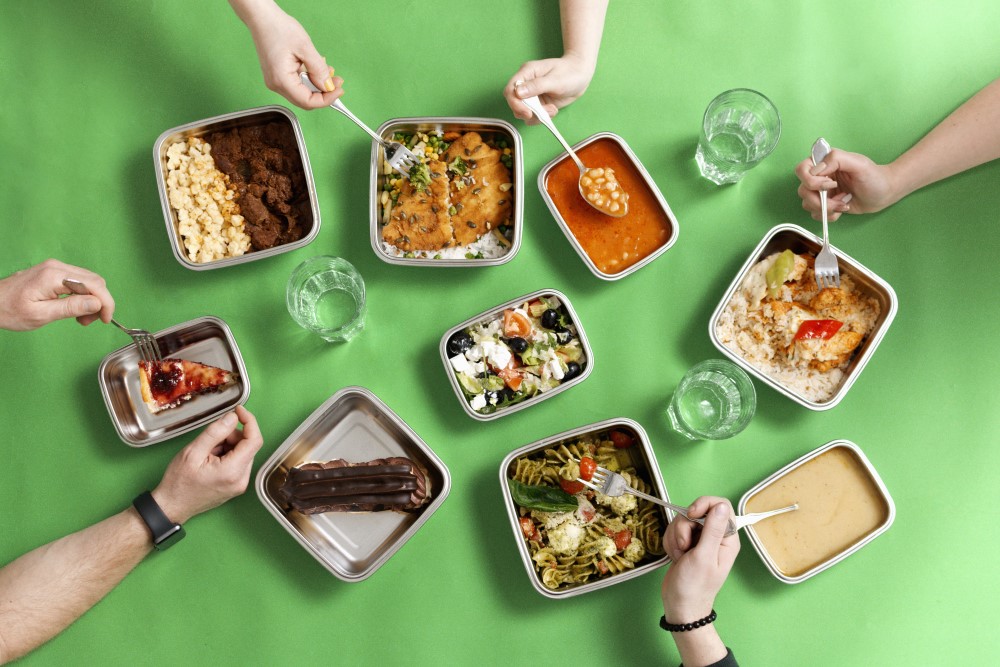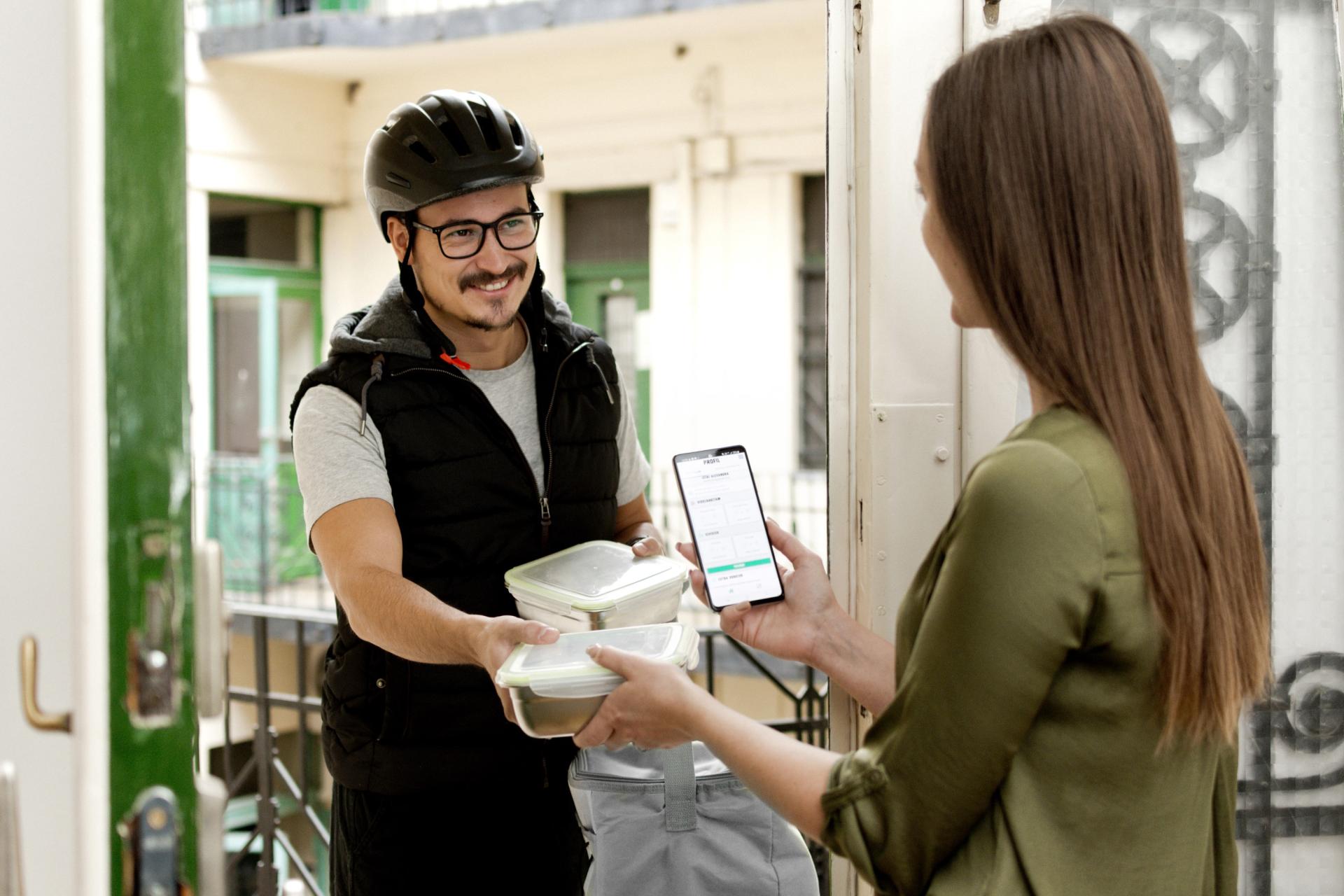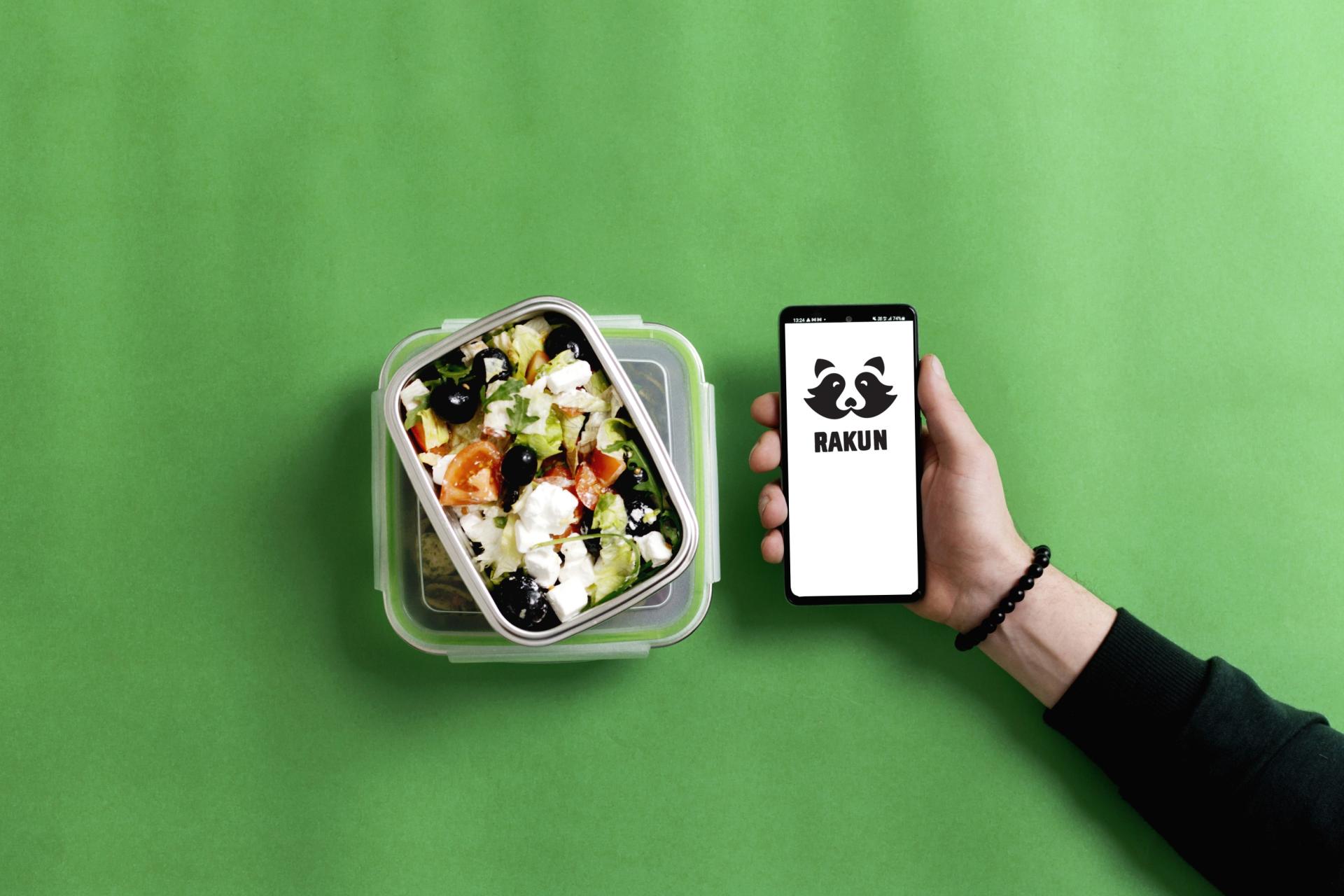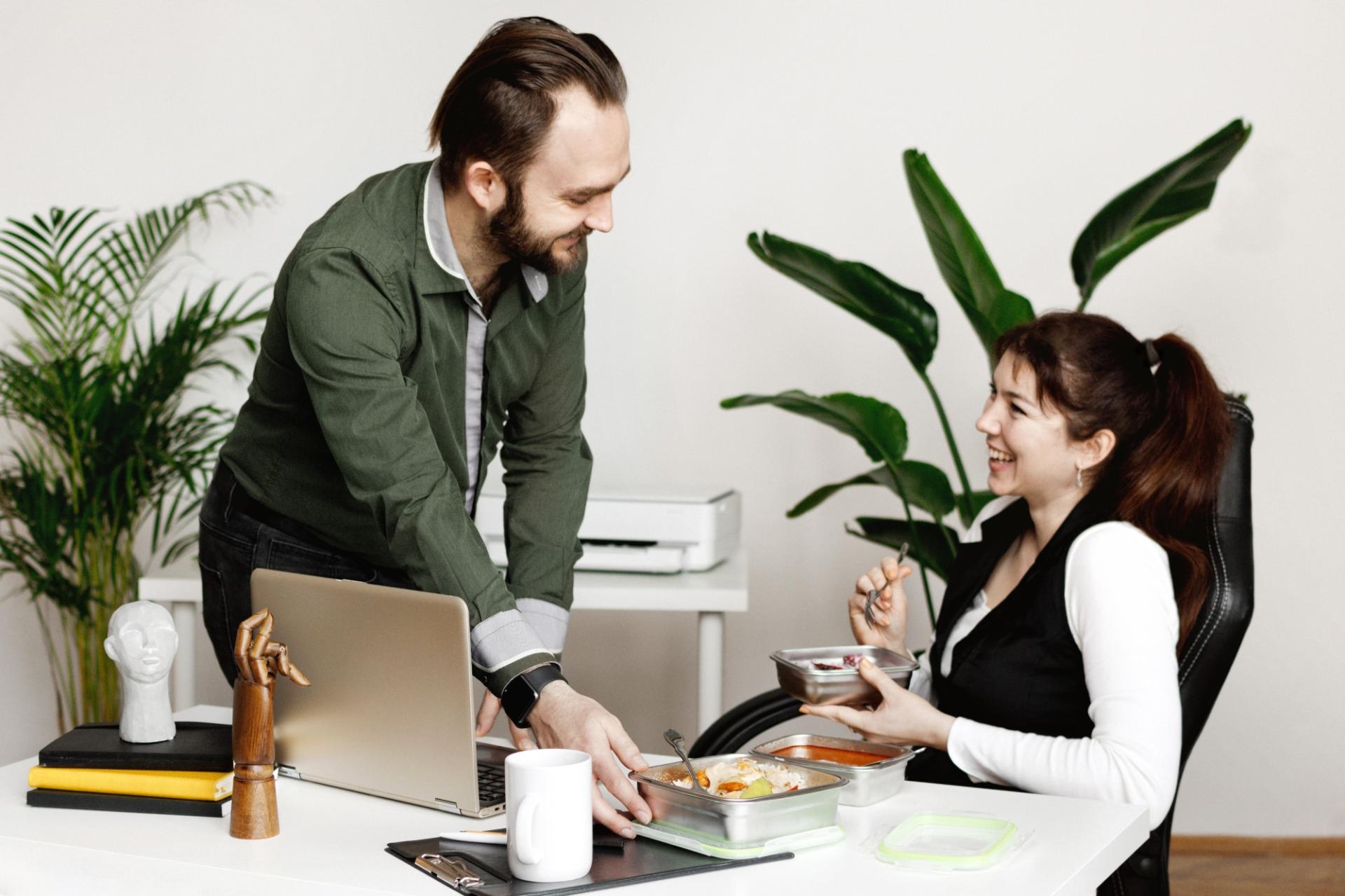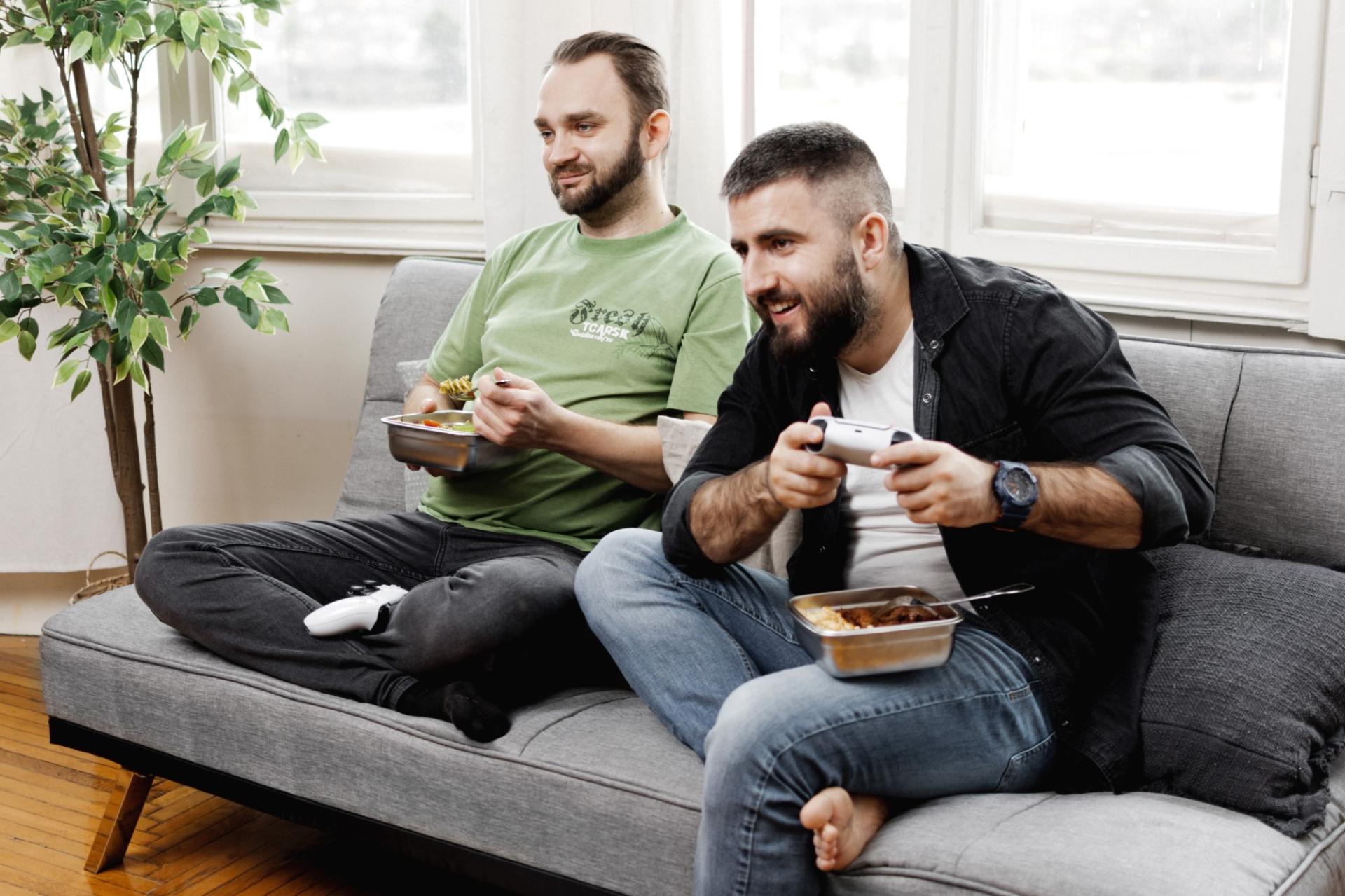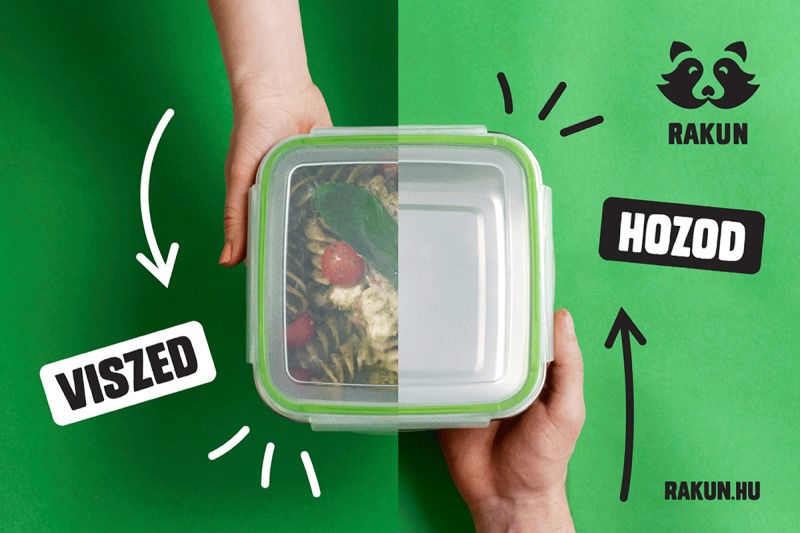Rakun Boxcommunity
Basic information
Project Title
Full project title
Category
Project Description
With take-away and food delivery becoming more popular, the number of single use boxes that end up in the trash is on the rise. Food containers are the third most common plastic litter of oceans. By signing up for a membership at the RAKUN app, customers can order their food home in reusable, stainless steel boxes. The next time they want to use the box, they drop off the one they have with them, and the restaurant replaces their used box with another one that has already been properly washed.
Geographical Scope
Project Region
Urban or rural issues
Physical or other transformations
EU Programme or fund
Which funds
Description of the project
Summary
By signing up for a membership in the RAKUN app, customers can order or take away their food in reusable, stainless steel boxes for a fixed monthly price. The next time they want to use the box, they give them back to the courier or drop off the one they have with them, and the restaurant replaces their used box with another one that has already been properly washed and disinfected.
The app is needed to ensure the tracking of the boxes in the ecosystem. They are high value assets and we have a couple of safety measures built in to reduce the number of lost boxes. The tracking is based on QR-code scanning which is convenient for the users and the restaurants alike.
Restaurants pay a low rental fee for the boxes. For the restaurants that can’t wash them up, we will offer a service in which we collect, commercially clean and redistribute the boxes. We plan to do this with bike couriers to make sure that the logistics is also carbon neutral.
By monitoring the movement of boxes with the help of QR codes, we guarantee that our partner restaurants always have enough replacement boxes in stock.
Our B2B market consists of restaurants whose leadership feels responsibility for the huge amount of garbage they generate with packaging the meal they serve. They are the ones who serve a daily menu or have limited space to sit in and therefore have bigger take-away traffic or have home delivery options.
Our target customers are the ones who don’t like/cannot cook or don’t have time for that. Especially people between 24-40 years, living in a bigger city in Hungary, mostly women (who are more sensitive to environmental protection issues), who can use a smartphone and have internet access (these are essential to use our services).
Key objectives for sustainability
According to the calculations of the Association of Conscious Customers, more than 13 million plastic disposable food boxes are thrown in the trash every year in Budapest alone. This creates a lot of plastic waste that is not recycled because it is contaminated and ends up in landfills for hundreds of years. Our team has the motivation to eliminate this specific waste. Our generation became very dependent on the comfortable solution of throw-away boxes. With digitalization, we provide the same comfort with no plastic waste. With this project we also stand into a sustainable resource management in a sharing-economy, because our users (guests who order their food in our boxes) don’t buy the boxes but rent them and can give back when they don’t want to use them. This way we don’t need to manufacture so many boxes.
Key objectives for aesthetics and quality
Having your food in a single use plastic box is neither a quality of experience nor healthy and especially not environmentally friendly. With our beautiful and drip-free reusable stainless steel boxes we can give people back the feeling of exclusivity without any frustration of harming the environment. Having a meal delivered reduces the eating experience a lot. Lots of people do not even take their food out of the box, but only make it hot in a microwave oven. With our services they not only can have their food without generating waste but also can gain back the feeling of having a good meal. When we were looking for packaging alternatives our goal was to find the best design and quality while not sacrificing on usability. This ensures that we received a plethora of requests to buy our boxes B2B and B2C as well. However, our strategic decision is not to sell any boxes as it would disrupt our end goal of a sustainable circular subscription based service.
Key objectives for inclusion
We believe that protecting the environment is a common cause and people should not underestimate their own individual impact. Talking with restaurants it turned out that they feel responsible about generating so much packaging waste, and they would be really happy if someone would come up with a solution. We also have lots of feedback from the guests, who also feel frustrated about making their dustbin full of single use plastic boxes after a good lunch. So we designed a project where everyone can be satisfied. Restaurants wash the boxes that’s why they only pay a symbolic rent for the boxes we supply. Renting the boxes as a guest is also economical. They can subscribe for a low fixed price for which they can use the boxes unlimited time. After 3-4 usage in a month they can save money compared to the prices of the single use boxes. Now we have almost 90 partner restaurants who are using Rakun boxes in 14 cities in Hungary. Our goal is to have at least 200 partners at the end of 2022 to make our service more accessible.
Results in relation to category
Our project represents a unique point of view which is really rare, especially in Hungary. We created a service which is based on the sharing economy. The reusable Rakun boxes stay in our property, guests and restaurants can only use them and if they don’t need them, they have to give them back. We try to avoid recycling waste, instead of wanting to prevent the generation of it by using materials which are really durable and with a system (renting) which allows us to treat our resources sparingly. The bottom of the boxes are made of stainless steel which can be used more than 1000 times, and after its life cycle it can be recycled without deterioration. The lids are made of PP to be drip-free and can also be recycled. With the subscription renting model we will need less boxes in the system than with a deposit system, where everybody has a box at home which is not worth bringing back so in the end it has no real big environmental impact. According to a life cycle assessment of the Denkstatt Hungary Ltd., after 25-26 uses of a Rakun box the CO2 equivalent will be lower than using PP boxes manufactured in Hungary. (https://denkstatt.eu/wp-content/uploads/2021/11/background-report-lca-rakun.pdf)
How Citizens benefit
The two founders of Rakun Box community are the leaders of the Foundation of Responsible Dining (Felelős Gasztrohős Alapítvány: www.gasztrohos.hu). They bring their experiences from the non-profit sphere so basically the design originated from civil society. We also talked to our followers and they want us to solve the problem of having their meal delivered without generating waste. We make surveys regularly since the beginning and talk/chat/write to users and try to build their remarks in the process.
Physical or other transformations
Innovative character
We are providing a service for restaurants that enables guests to request their take-away food in reusable food containers. Our food containers are durable stainless steel boxes and are tracked via QR code and an application. The solution has two digital interfaces. A user-facing application to keep track of your boxes and available restaurants in the network. Also, a website for restaurants to track their box inventory. Our service can be also used via third-party delivery providers like Foodpanda and Wolt. As a side venture, we also provide consultation to restaurants regarding sustainability and have a sustainability certification program.
The solution is very innovative and supports the green transition of food delivery. We have seen growing interest from restaurants in the past period. The key element of our system is an application used to track the boxes and make sure they are not lost in the transactions. The use of the application adds additional complexity to the food ordering process compared to single-use throw-away boxes.
Learning transferred to other parties
We have found multiple companies around the world trying to solve the same problem. However we have found that the business model of each is different and unique. This means that there is not a one size fits all approach in this business and we have done multiple market studies and interviews to understand what would be the best working business model in Hungary. This methodology can be documented and reused in other countries/regions as well.

